Struggling with bloating, fatigue, or skin issues? Your gut might be the hidden cause.
A balanced microbiome is key to feeling your best, but many overlook it.
This blog breaks down why gut health matters and simple steps you can take to restore balance—starting today!
Key Takeaways:
- Prebiotic Sodas Promote Gut Health: Prebiotic sodas, like Poppi and Olipop, contain fibers that support digestion by feeding beneficial gut bacteria, improving overall gut health. These drinks are a healthier alternative to sugary sodas.
- Mood-Enhancing Drinks Reduce Stress: Functional beverages with ingredients like ashwagandha, L-theanine, and magnesium may help alleviate stress and improve mood. These drinks can offer a natural alternative to traditional stress-relief methods.
- Functional Beverages vs. Traditional Sodas: Unlike traditional sodas, which are high in sugar and offer minimal health benefits, functional beverages provide added nutrients and benefits like improved digestion, mood regulation, and enhanced energy.
What is the Microbiome and Why Should You Care?
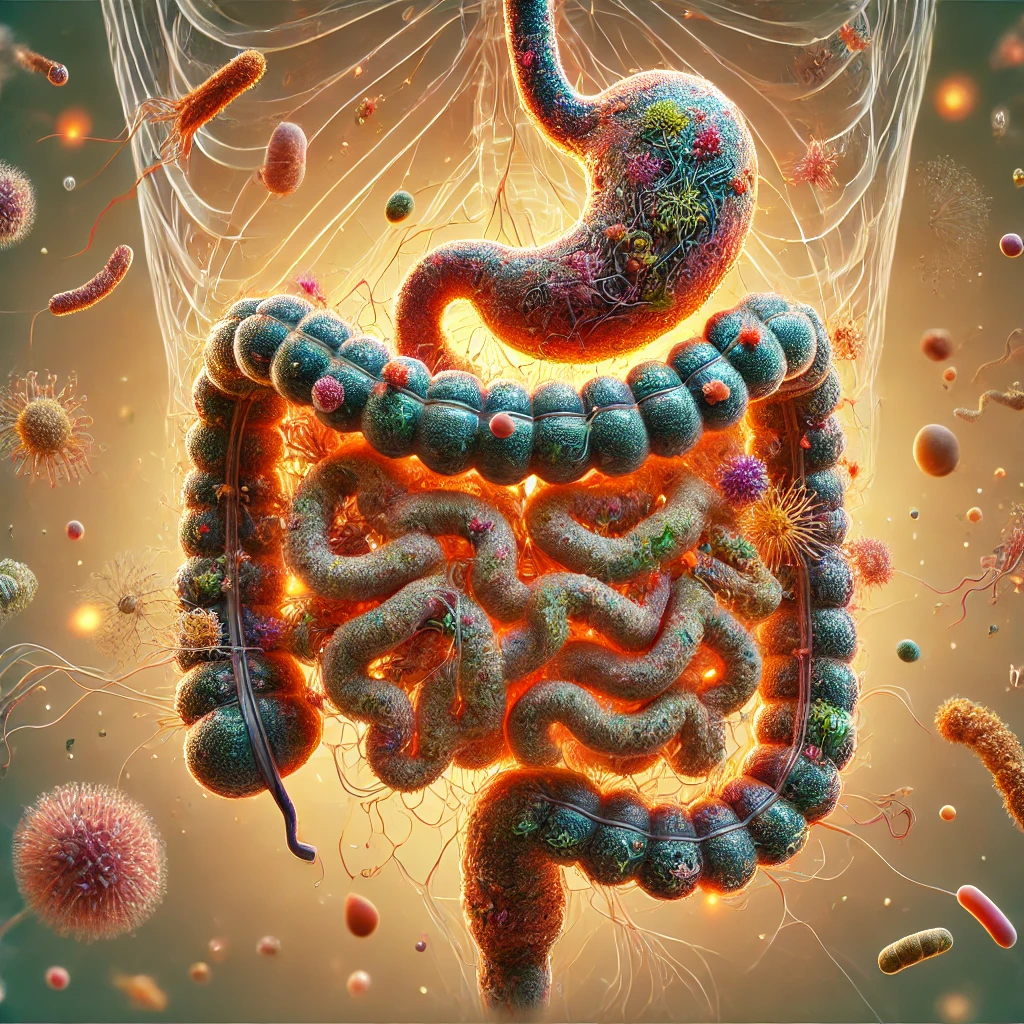
The microbiome is a complex ecosystem of trillions of bacteria, fungi, and other microorganisms living in your gut. These tiny organisms play a vital role in digestion, immunity, and even mental health.
Gut Bacteria and Digestion
Gut bacteria break down food, making nutrients available to your body. Without this process, digestion becomes inefficient, and nutrients can’t be absorbed properly. For example, Lactobacillus and Bifidobacterium are two strains of bacteria that help digest dairy products and ferment fibers into short-chain fatty acids, which are critical for gut health.
Gut Bacteria and Immunity
Around 70% of your immune system resides in your gut. Healthy bacteria support immune function by regulating inflammation and producing substances that help protect against harmful pathogens. A diverse microbiome ensures a balanced immune response, reducing the risk of infections and chronic inflammation.
Gut Bacteria and Mood
Your gut communicates with your brain through the gut-brain axis. About 90% of serotonin, the “feel-good” hormone, is produced in the gut. If your gut bacteria are out of balance, it can affect your mood, leading to issues like anxiety and depression. Research shows that gut health is directly linked to mental well-being.
What Happens When Your Microbiome Is Unbalanced
An unbalanced microbiome, known as dysbiosis, can lead to several health problems:
- Poor Digestion: If your gut bacteria aren’t functioning well, you can experience bloating, constipation, diarrhea, and other digestive issues.
- Low Immunity: Without enough good bacteria, harmful pathogens can flourish, leading to a weakened immune system.
- Skin Issues: Conditions like acne, eczema, and rosacea can be linked to gut health. An imbalanced microbiome triggers inflammation, which can show up on your skin.
Maintaining a balanced microbiome is key to good health. Regularly consuming probiotics and prebiotics through food—like yogurt, sauerkraut, garlic, and bananas—can help support a healthy gut.
The Gut Brain Connection: How Gut Bacteria Influence Mental Health
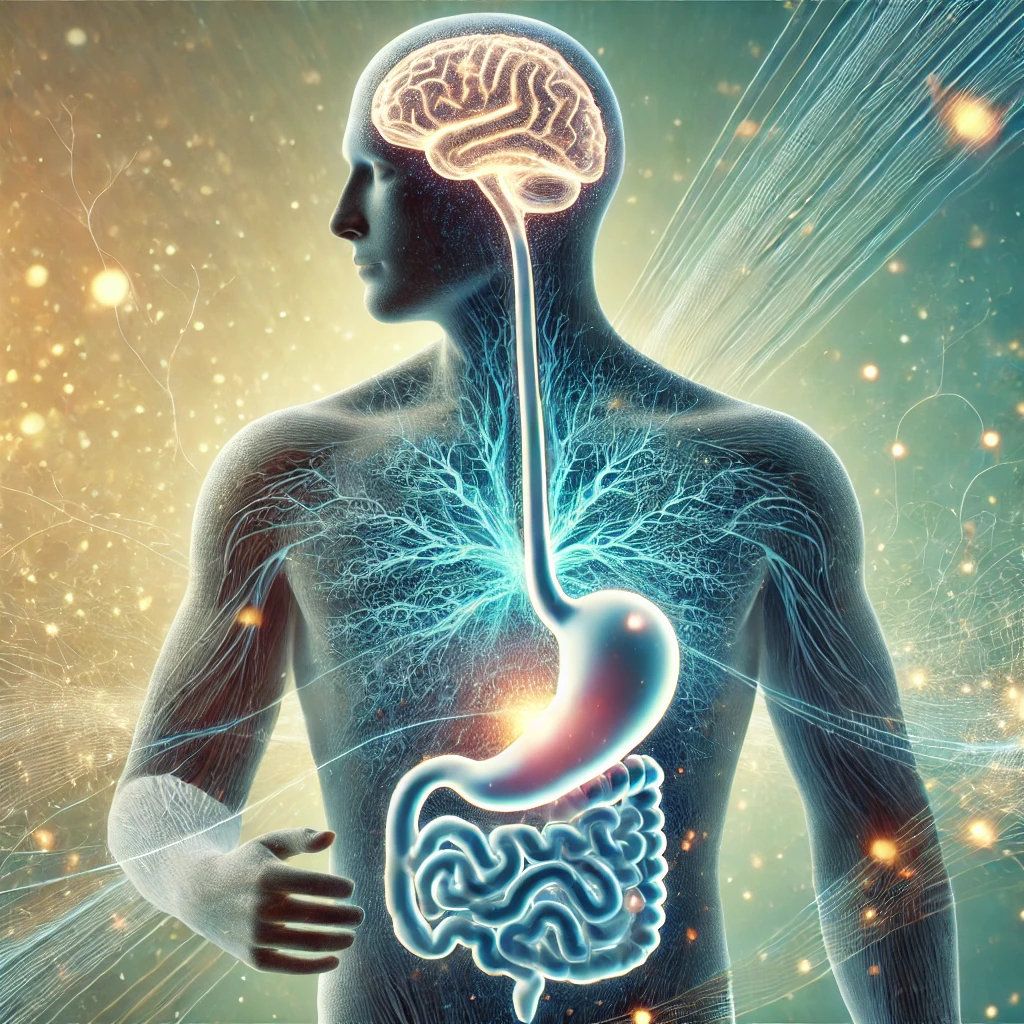
The connection between your gut and brain is stronger than most people realize. The gut doesn’t just process food; it also communicates directly with your brain, influencing your mood, cognition, and overall mental health.
Gut and Brain Communication
Your gut and brain talk to each other through a pathway called the gut-brain axis. This connection is so powerful that your gut is often referred to as the “second brain.” The gut contains around 100 million nerve cells, which is more than your spinal cord. These nerve cells release neurotransmitters, including serotonin—the hormone that regulates mood.
Gut bacteria play a big role here. They send signals to your brain by producing neurotransmitters and short-chain fatty acids. For example, Lactobacillus and Bifidobacterium bacteria influence the production of serotonin. If your gut is unhealthy, these signals can get disrupted, leading to poor mental health.
Impact on Mental Health
When the balance of bacteria in your gut is off, it can have a major impact on your mental health:
- Anxiety: A lack of healthy gut bacteria can increase the levels of stress hormones, causing anxiety. Studies show that individuals with an imbalance in gut bacteria are more likely to experience high levels of anxiety.
- Depression: About 90% of serotonin is produced in your gut. An imbalanced microbiome can reduce serotonin levels, leading to feelings of sadness, depression, and emotional instability.
- Brain Fog: Poor gut health can cause inflammation, which might travel to the brain. This can lead to symptoms like brain fog, making it hard to concentrate or think clearly. A clear, healthy gut helps your brain stay sharp.
Microbiome Testing
If you’re dealing with mental health issues like anxiety or depression and suspect your gut health is the cause, microbiome testing can be a game changer. This test analyzes the bacteria in your gut and identifies imbalances. By knowing which bacteria are out of balance, you can take action to restore your gut’s health.
Personalized probiotics and dietary changes based on your microbiome results can improve mental health significantly.
For example, if your test reveals a lack of Lactobacillus or Bifidobacterium, you can start taking supplements or consuming foods that promote the growth of these specific bacteria, like yogurt or fermented foods.
The Effects of Gut Imbalance on Digestion and Skin
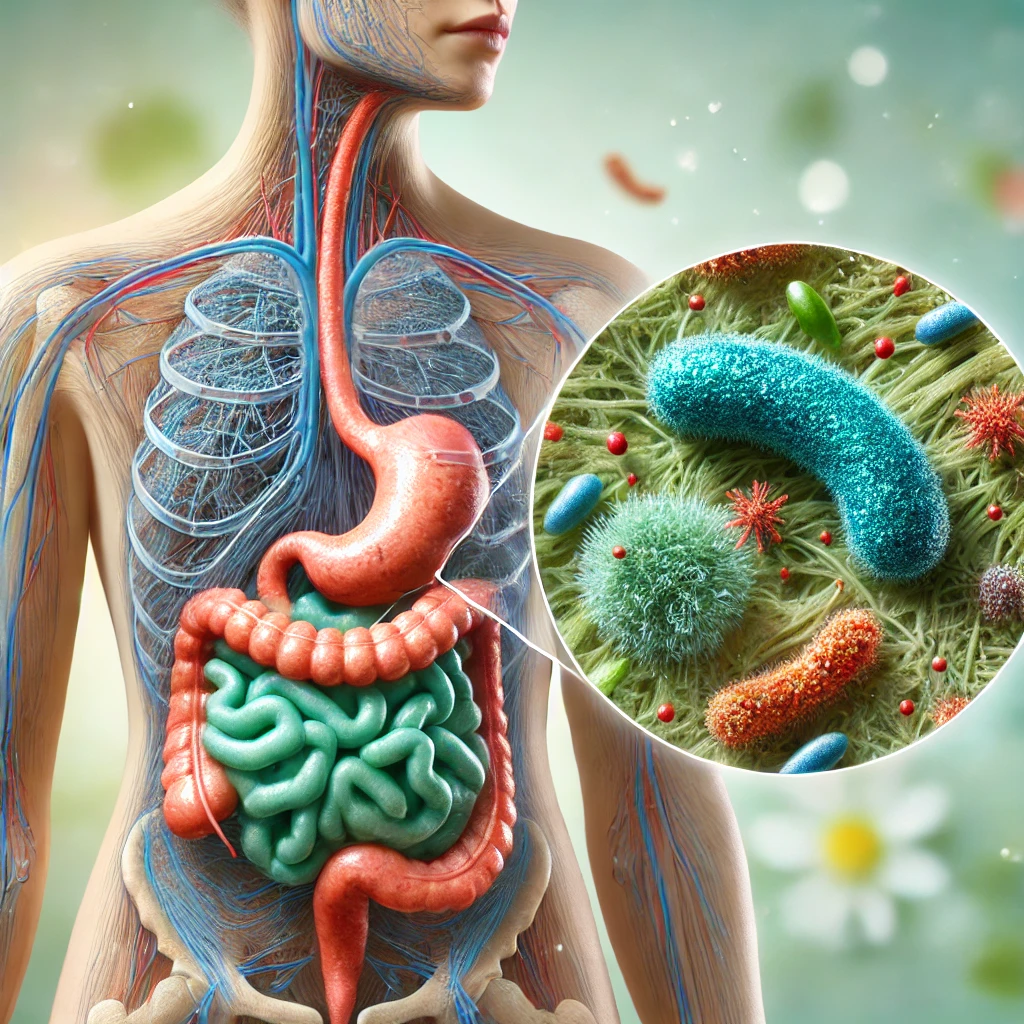
When your gut is out of balance, it affects much more than just digestion. Let’s break it down clearly:
1. Digestive Health:
Gut bacteria are essential for digesting food properly. Without the right balance, you’ll face digestive issues like:
- Bloating: When the wrong bacteria ferment food incorrectly, it leads to excess gas and bloating.
- Constipation: An imbalance in gut bacteria can slow down your digestion, leading to constipation.
- Diarrhea: A lack of healthy bacteria can cause an overgrowth of harmful bacteria, leading to diarrhea.
Example: A study found that people with bloating have fewer beneficial bacteria like Bifidobacterium and Lactobacillus in their gut. These good bacteria break down food, reduce gas, and support healthy bowel movements.
2. Skin Conditions:
Your skin reflects your gut health. Imbalances in the microbiome are often linked to skin problems such as:
- Acne: Harmful bacteria in your gut can trigger inflammation, which shows up on your skin.
- Eczema and Rosacea: An unhealthy gut may increase inflammation and affect your skin’s ability to protect itself.
- Psoriasis: Studies suggest that an unbalanced microbiome may lead to conditions like psoriasis due to chronic gut inflammation.
Example: A study from The American Academy of Dermatology shows that restoring gut health with probiotics can reduce symptoms of eczema and rosacea.
3. Gut Restoration:
To get your gut—and your skin—back on track, follow these simple steps:
- Eat Gut-Healthy Foods:
Fiber-rich foods like whole grains, fruits, and vegetables feed good bacteria.
Fermented foods like yogurt, kimchi, and kefir introduce beneficial probiotics.
Healthy fats like those found in avocados and nuts support the gut lining.
- Probiotics: Add probiotics to your daily routine to restore the balance. Foods like kombucha and sauerkraut are great. If you prefer supplements, choose one with multiple strains of beneficial bacteria.
- Hydration: Drink plenty of water to keep your digestion running smoothly and support your gut’s health.
- Stress Management: Chronic stress negatively impacts your gut bacteria. Practice mindfulness or engage in physical activity to keep stress at bay.
- Exercise: Regular physical activity can help keep your digestive system in top shape, promoting healthy gut bacteria.
How Microbiome Testing Helps Improve Gut Health
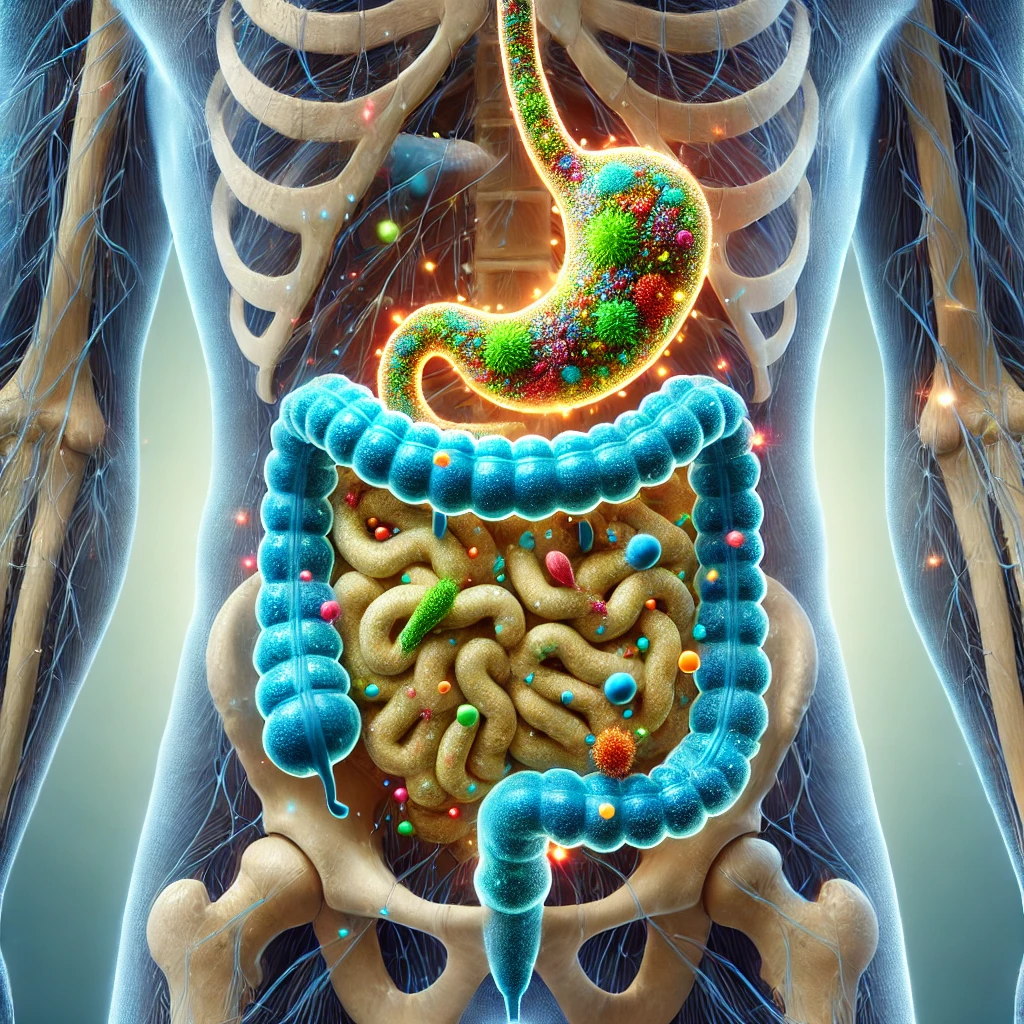
Your gut is home to trillions of bacteria that influence your health, digestion, and immunity. When these bacteria are out of balance, it leads to issues like bloating, fatigue, and even skin flare-ups.
Here’s where microbiome testing comes in. It helps you understand what’s happening inside your gut.
What Is Microbiome Testing?
Microbiome testing is a simple process where a sample of your stool is analyzed. This test identifies the types and quantities of bacteria in your gut. It can reveal if you have any harmful bacteria overgrowing, or if beneficial bacteria are missing.
- What’s Tested: The test looks for specific bacteria strains and their proportions. It checks for both beneficial bacteria and harmful ones.
- How It Works: The sample is sent to a lab, where it is analyzed using DNA sequencing technology. The results tell you which bacteria are thriving in your gut and which ones might be causing problems.
Example: If you suffer from bloating and your test shows low levels of Lactobacillus (a good bacteria), it could explain why your digestion isn’t functioning properly.
Personalized Probiotics: Tailored Solutions for Your Gut
Once you have your microbiome test results, they help you understand exactly what your gut needs. A personalized probiotic regimen can be created based on the test results.
- What Are Personalized Probiotics?: These are probiotics designed specifically for your gut. They’re based on the bacteria that are either lacking or overabundant in your gut.
- How They Work: A personalized probiotic can help restore balance by adding the right strains of bacteria your gut needs.
Example: If the test shows you’re low on Bifidobacterium, a probiotic containing this strain can be recommended. It will help improve digestion, reduce bloating, and promote a healthier gut.
Benefits of Microbiome Testing
Microbiome testing isn’t just about finding problems. It’s about providing targeted, science-backed solutions for better health. Here are the key benefits:
- Better Targeted Treatments: Instead of guessing what might work, microbiome testing offers a roadmap. It tells you exactly which bacteria are affecting your gut.
- Faster Improvements: When you know what your body needs, it’s easier to make changes that lead to quick improvements in digestion, energy, and immunity.
- Prevent Long-Term Issues: Regular testing can help you monitor and prevent problems before they become chronic. For example, a gut imbalance can lead to autoimmune conditions if left untreated.
- Improved Overall Health: A balanced gut can improve mood, reduce inflammation, and support better digestion. All of this contributes to better overall wellness.
Example: After microbiome testing, one of my clients was able to focus on specific probiotics and prebiotics that helped her eliminate constant bloating. She saw results in just a few weeks.
Gut Health Supplements: Do You Need Them?
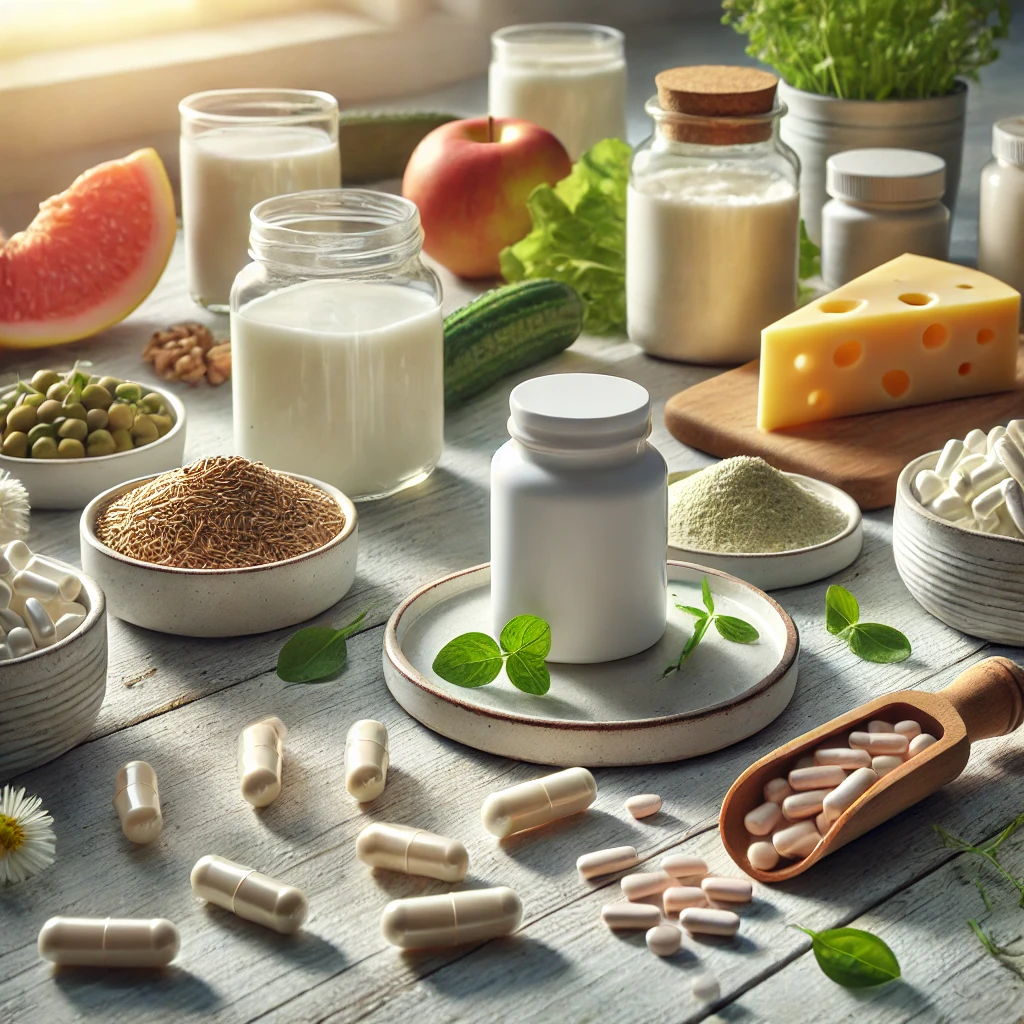
Gut health supplements are becoming increasingly popular, and for good reason. These supplements, including probiotics, prebiotics, and digestive enzymes, play a key role in supporting digestive health and overall well-being.
What Are Gut Health Supplements?
- Probiotics: These are live bacteria that help replenish the good bacteria in your gut. They support digestion and immunity. Examples include Lactobacillus and Bifidobacterium strains found in yogurt, kefir, or probiotic capsules.
- Prebiotics: These are non-digestible fibers that feed your good gut bacteria. Foods like garlic, onions, and bananas are natural sources. Prebiotics support the growth of beneficial bacteria in the gut.
- Digestive Enzymes: These enzymes break down food into nutrients your body can absorb. For example, amylase breaks down carbohydrates, while lipase helps digest fats.
Choosing the Right Supplement
With so many options out there, it’s crucial to pick the right one based on your needs.
- For Bloating: If you struggle with bloating, look for a probiotic supplement with Lactobacillus and Bifidobacterium. These strains help break down food and alleviate gas buildup.
- For Skin Health: If your skin is reacting to gut issues, consider probiotics that promote gut-brain health. Saccharomyces boulardii has been shown to help clear skin by reducing gut inflammation.
- For General Digestive Support: Digestive enzyme supplements can help if you’re eating rich or difficult-to-digest foods, like high-fat meals. They ensure your body gets the nutrients it needs without the digestive discomfort.
Personalized Probiotics
- What are They?: Personalized probiotics are supplements designed specifically for your unique microbiome. By analyzing your gut bacteria through microbiome testing, these probiotics are tailored to meet your gut’s specific needs.
- How Do They Help?: Personalized probiotics can target specific gut issues—whether it’s bloating, digestion, or immunity. If your gut needs more Lactobacillus, a test might reveal that and provide you with a probiotic that contains that strain.
- Real Example: After a microbiome test, a patient found that they lacked certain strains of bacteria that help digest dairy. With personalized probiotics, their digestion improved significantly, and they noticed a decrease in bloating after meals.
Proven Benefits of Gut Health Supplements
- Improved Digestion: Probiotics have been shown to help with symptoms of irritable bowel syndrome (IBS), such as bloating, constipation, and diarrhea. Studies show that the right probiotics can restore balance in your gut bacteria, leading to smoother digestion.
- Stronger Immunity: A healthy gut is essential for a strong immune system. Probiotics help boost your immunity by balancing harmful bacteria and supporting your gut lining.
- Healthier Skin: A healthy microbiome can reduce inflammation and support skin health. For example, Bifidobacterium probiotics have shown positive effects in reducing skin flare-ups associated with conditions like acne.
Gut Friendly Recipes: What to Eat for a Healthy Microbiome

Your gut health is the foundation of your overall well-being. A healthy microbiome supports digestion, immunity, and even your mood. By choosing the right foods, you can fuel the good bacteria in your gut, which helps keep everything in balance.
1. Gut-Friendly Foods You Should Include
To keep your microbiome strong, eat a variety of foods that nourish gut bacteria:
- Fiber-Rich Foods: Fiber acts as food for the good bacteria in your gut. It promotes healthy digestion and regular bowel movements.
- Examples: Oats, beans, lentils, apples, carrots, and broccoli.
- How it Helps: Fiber helps prevent constipation, feeds beneficial gut bacteria, and reduces gut inflammation.
- Fermented Foods: These foods are rich in probiotics, which are beneficial bacteria that help restore gut balance.
- Examples: Yogurt, kefir, sauerkraut, kimchi, and miso.
- How it Helps: Fermented foods increase the diversity of gut bacteria, improving digestion and immunity.
- Prebiotic-Rich Foods: Prebiotics feed your good gut bacteria, helping them thrive and multiply.
- Examples: Bananas, onions, garlic, leeks, and asparagus.
- How it Helps: Prebiotics help maintain a balanced gut microbiome by nourishing beneficial bacteria.
2. Gut-Friendly Recipes You Can Try
Here are a few simple, gut-friendly recipes that will support your microbiome and fit into any busy schedule:
Fermented Vegetable Salad
Ingredients:
-
- 1 cup sauerkraut
- 1 cup shredded carrots
- 1/2 cup red cabbage, finely shredded
- 2 tbsp olive oil
- 1 tbsp apple cider vinegar
- Salt and pepper to taste
Instructions:
-
- Mix all ingredients in a bowl.
- Drizzle olive oil and vinegar, then season with salt and pepper.
- Let the salad sit for 15 minutes before serving to allow flavors to blend.
Why it Helps: The sauerkraut and cabbage provide probiotics and fiber, promoting a healthy gut.
Kefir Smoothie
Ingredients:
-
- 1 cup kefir (plain, unsweetened)
- 1/2 banana
- 1/2 cup spinach
- 1 tbsp chia seeds
- 1/2 cup berries
Instructions:
-
- Blend all ingredients together until smooth.
- Pour into a glass and enjoy.
Why it Helps: Kefir is rich in probiotics, while chia seeds and spinach provide fiber and nutrients that support gut health.
High-Fiber Veggie Stir-Fry
Ingredients:
-
- 1 cup broccoli florets
- 1/2 cup sliced carrots
- 1/2 cup bell peppers
- 2 tbsp olive oil
- 1 tbsp soy sauce (or tamari for gluten-free)
- 1 tsp sesame seeds
Instructions:
-
- Heat olive oil in a pan, then sauté vegetables until tender.
- Add soy sauce and sesame seeds, then toss to coat.
- Serve hot as a side dish or add to a grain-based meal like quinoa.
Why it Helps: This recipe is rich in fiber from vegetables that support a healthy digestive system.
3. How These Foods Help Your Gut
These gut-friendly foods offer numerous benefits to your microbiome:
- Fiber: Acts as food for your gut bacteria, helping them grow and multiply. It also promotes regular bowel movements and prevents constipation.
- Probiotics: Found in fermented foods, they help increase the number of beneficial bacteria in your gut, improving digestion and boosting immunity.
- Prebiotics: These non-digestible fibers feed the good bacteria, keeping your microbiome balanced and reducing harmful bacteria.
4. Practical Tips for Incorporating These Recipes
You don’t have to spend hours in the kitchen to support your gut health. Here are some quick tips:
- Prep in Advance: Make a batch of fermented vegetable salad or stir-fry for the week. Store it in the fridge and enjoy it with meals.
- Start Your Day with a Kefir Smoothie: Use it as a quick breakfast or snack to get in some probiotics and fiber early.
- Include Fiber-Rich Foods in Every Meal: Whether it’s adding fruits and vegetables to your lunch or having beans for dinner, aim to include at least one high-fiber food per meal.
The Pros and Cons of Gut Health Supplements and Products
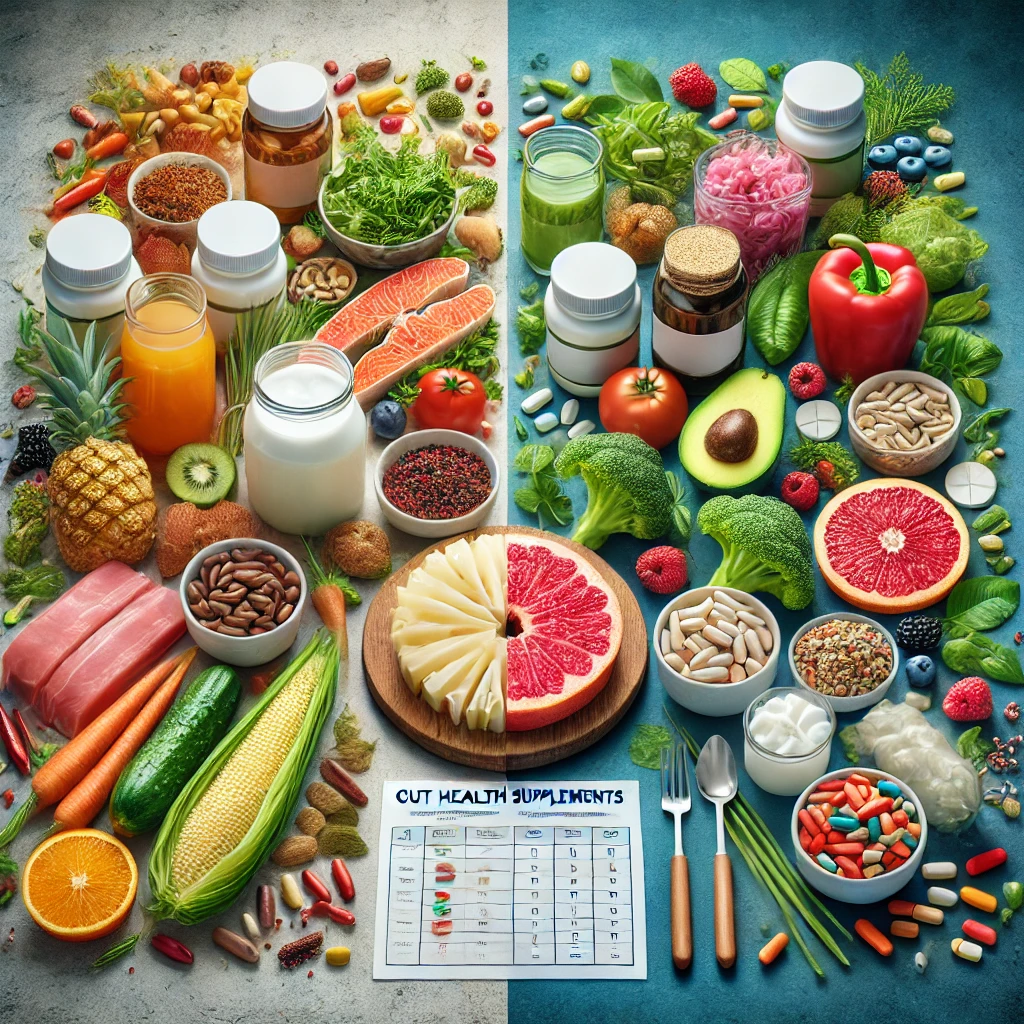
Gut health supplements are becoming increasingly popular, but they come with both benefits and potential downsides. Here’s a look at what you can expect when using these products:
Pros of Gut Health Supplements
Improved Digestion
- Probiotics, prebiotics, and digestive enzymes help break down food more efficiently.
- Example: A supplement with Lactobacillus and Bifidobacterium can ease bloating and gas.
Boosted Immunity
- Gut health supplements support your immune system by balancing your gut bacteria.
- A healthy gut can prevent the overgrowth of harmful pathogens, reducing your risk of infections.
Healthier Skin
- Gut health is linked to skin conditions like acne and eczema.
- Studies show that improving your microbiome can reduce inflammation that causes breakouts.
- Example: Fermented foods or a good probiotic can be part of your skincare solution.
Personalized Supplements
- Personalized supplements are now available, catering to your unique microbiome.
- These supplements are designed based on microbiome testing, ensuring better results.
- This approach can improve the effectiveness of the supplement for your specific needs.
Cons of Gut Health Supplements
Effectiveness Varies
- Not all supplements work the same for everyone.
- Some products may have little to no impact on your gut health.
- It’s important to do your research and understand which strains and doses work best for your body.
Potential Digestive Discomfort
- Overuse of certain supplements, like probiotics, can cause bloating, gas, or diarrhea.
- Example: Starting with a high dose of probiotics may overload your gut, causing discomfort.
- Gradually introducing these supplements can help avoid this.
Misinformation in the Market
- The supplement market is unregulated, which means misleading information can make it into the market.
- Some products are not backed by credible research or may not have the claimed benefits.
- Stick to reputable brands with transparent ingredient lists and customer reviews.
How to Restore Gut Health: Simple Steps to Begin Today
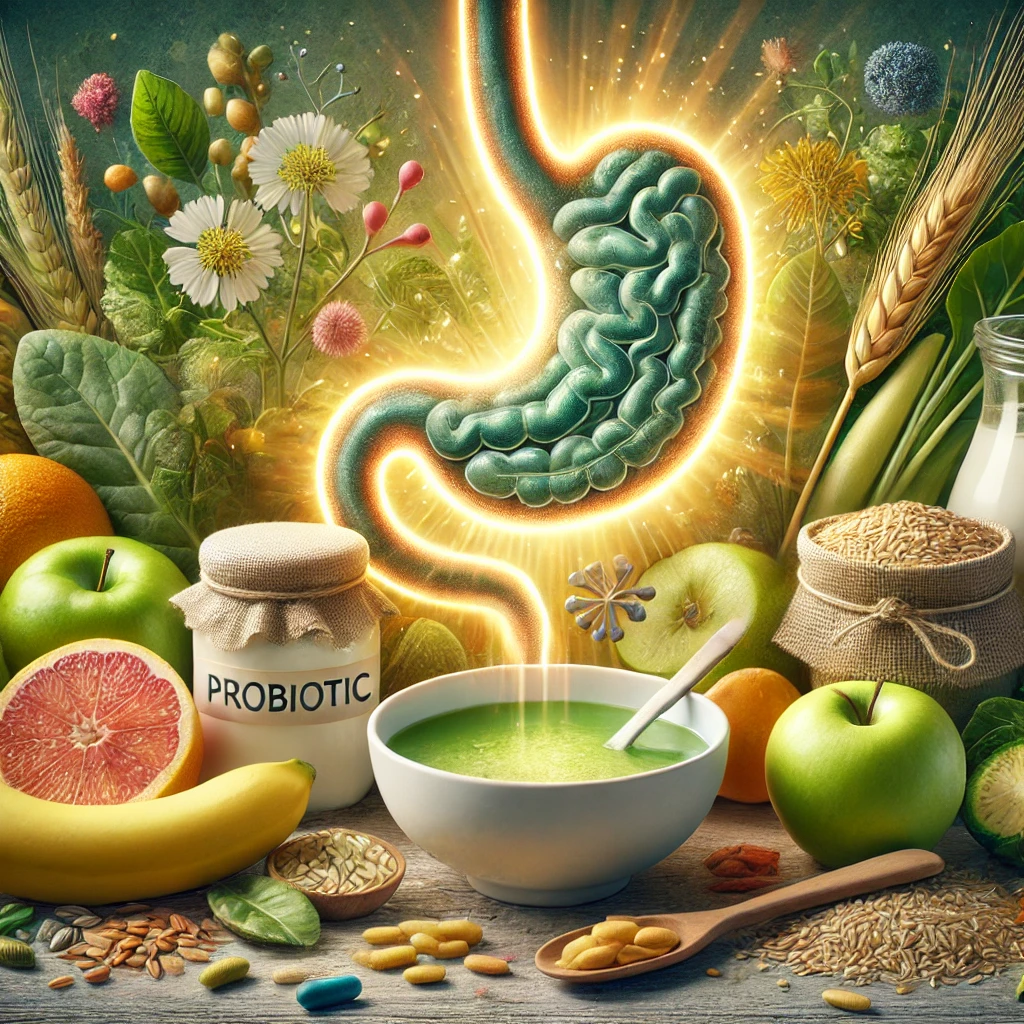
Restoring gut health is straightforward, and you don’t need medications to do it. The key is to make dietary changes, adopt the right lifestyle habits, and consider supplements when necessary. Here’s a simple guide to get you started on improving your gut health today.
1. Dietary Adjustments
Your gut thrives on the right foods. Let’s break it down:
Increase Fiber: Fiber is the best fuel for good gut bacteria. Include high-fiber foods like:
- Oats
- Apples
- Beans
- Sweet potatoes
- Leafy greens
Fiber-rich foods help maintain regular digestion and promote healthy bacteria growth.
Fermented Foods: These foods are packed with probiotics—healthy bacteria that directly benefit gut health. Include:
- Yogurt with live cultures
- Kimchi
- Sauerkraut
- Kefir
Fermented foods enhance digestion and improve your gut’s ability to break down food.
Healthy Fats: Omega-3s support gut health by reducing inflammation. Include foods like:
- Avocados
- Salmon and mackerel
- Walnuts
Healthy fats help manage inflammation, which can balance gut function and boost overall wellness.
2. Supplements
When your diet isn’t enough, supplements can help. Here are a few to consider:
- Probiotics: These are live bacteria that replenish the good bacteria in your gut. Start with simple options like capsules or powders. For example, Lactobacillus and Bifidobacterium are popular strains.
- Prebiotics: These are fibers that feed your gut bacteria. Foods like garlic, onions, and bananas are natural prebiotics. If you’re not getting enough, a prebiotic supplement can help.
- Digestive Enzymes: If you suffer from bloating or indigestion, digestive enzyme supplements can assist in breaking down food, making digestion smoother.
3. Lifestyle Factors
Healthy lifestyle choices play a huge role in maintaining a balanced gut:
- Exercise Regularly: Physical activity increases blood flow to the digestive system, which supports gut health. Aim for 30 minutes of moderate exercise most days of the week.
- Manage Stress: Chronic stress disrupts gut health, leading to imbalances in gut bacteria. Practice relaxation techniques such as deep breathing, yoga, or meditation to reduce stress levels.
- Sleep Well: Your gut bacteria rely on a consistent sleep schedule. Aim for 7-9 hours of quality sleep per night to help your gut repair and stay balanced.
4. Microbiome Testing
If you’re serious about restoring your gut health, consider microbiome testing. Testing gives you a clearer picture of your gut’s bacterial makeup, helping you pinpoint imbalances. From there, you can tailor your diet and supplement routine for a more personalized approach.
Product Comparison: Which Gut Health Products Are Right for You?
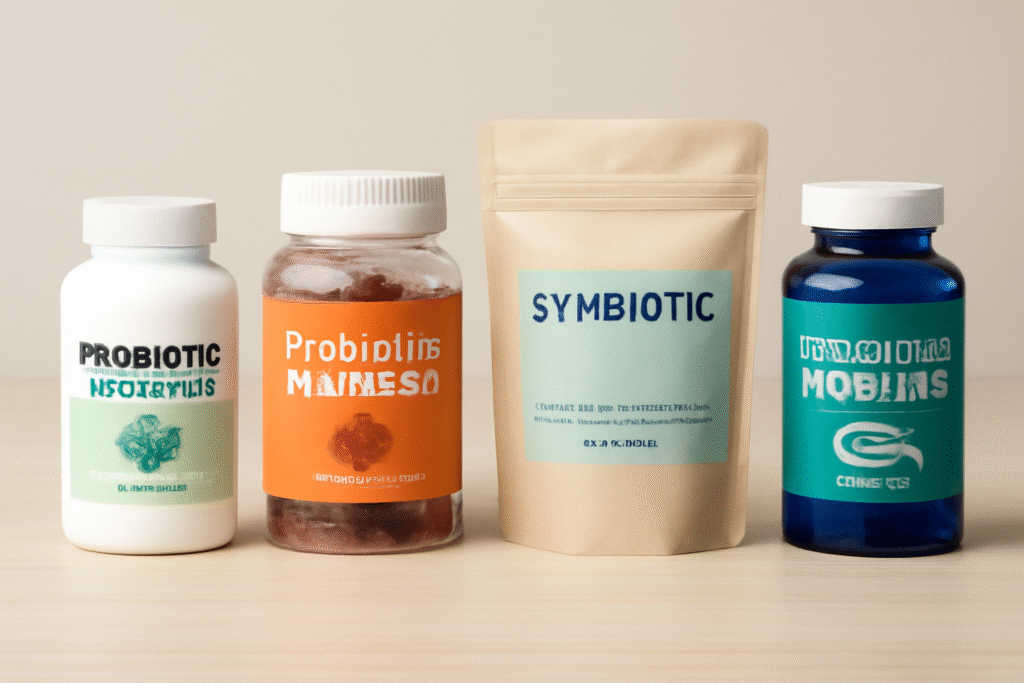
Garden of Life Dr. Formulated Probiotics Once Daily
NSF Certified
₹6,999
Align Probiotic Supplement 24/7 Digestive Support
Clinically Studied
₹3,568.46
Renew Life Ultimate Flora Ultimate Care Probiotic
High CFU Count
₹7,930
Florastor Probiotic Supplement
Supports Immune Health
₹3,067.83
Gut Balance | Buy Gut Health Supplements | The Good Bug
Budget-Friendly
₹649.00
Himalaya Healthy Gut Probiotic 60s
Natural Ingredients
₹633.60
Buy Probiotic Prebiotic Tablets for better Stomach Health and Digestion
Probiotic + Multivitamin
₹450.00
What’s Up Wellness Gut Health Gummies
Tasty Gummies
₹549
Tata Probiotics 1mg 30 Billion CFUs+ Capsule with Prebiotic
High CFU Count
₹255
Cosmix My Happy Gut
Plant-Based
₹741
Gut-health-tablets .
Electrolyte-Enriched
₹993.00
Researched Nutritionals RenewGut+ 120 Capsules
Gut Lining Support
₹5,968.59
Arunveda Gut Kit – Ayurvedic Medicine for Digestion & Gas
Holistic Approach
₹2,160.00
Wellbeing Nutrition Melts Healthy Gut
Natural Ingredients
₹559
Wlth – Immunity + Gut | Boost your Immune System and Fight Diseases
Adaptogenic Formula
₹1,399.00
Buy Glow and Gut Combo Online – Suspire
Herbal Blend
₹1,490.00
Buy Gut Matters | Relieve bloating, improve digestion, and support gut balance Online – Suspire
Herbal Drink
₹740.00
Vansaar Gut Relief (Sugar free) – 100g
Sugar-Free
₹199.00
Top Selections Explained:
Garden of Life Dr. Formulated Probiotics Once Daily
- Key Features: NSF Certified, contains multiple strains of probiotics.
- Price: ₹6,999
- Why Choose It: Ideal for those seeking a high-quality, daily probiotic supplement.
Align Probiotic Supplement 24/7 Digestive Support
- Key Features: Contains Bifidobacterium longum 35624, supports digestive health.
- Price: ₹3,568.46
- Why Choose It: Clinically studied strain known for its effectiveness in digestive support.
Renew Life Ultimate Flora Ultimate Care Probiotic
- Key Features: High CFU count, supports digestive and immune health.
- Price: ₹7,930
- Why Choose It: Suitable for those needing a potent probiotic formula.
Florastor Probiotic Supplement
- Key Features: Supports immune health, contains Saccharomyces boulardii.
- Price: ₹3,067.83
- Why Choose It: Beneficial for maintaining a healthy gut flora.
Gut Balance | Buy Gut Health Supplements | The Good Bug
- Key Features: Contains Lacticaseibacillus rhamnosus LGG® and Bifidobacterium animalis subsp. lactis BB-12®.
- Price: ₹649
- Why Choose It: Budget-friendly option with clinically researched strains.
Comparison Table:
| Product Name | Key Features | Price | Why Choose It |
|---|---|---|---|
| Garden of Life Dr. Formulated Probiotics Once Daily | NSF Certified, multiple strains | ₹6,999 | High-quality daily probiotic |
| Align Probiotic Supplement 24/7 Digestive Support | Bifidobacterium longum 35624 | ₹3,568.46 | Clinically studied strain |
| Renew Life Ultimate Flora Ultimate Care Probiotic | High CFU count | ₹7,930 | Potent probiotic formula |
| Florastor Probiotic Supplement | Saccharomyces boulardii | ₹3,067.83 | Supports immune health |
| Gut Balance | Improves Gut Health | ₹649 | Budget-friendly option |
FAQs
What are prebiotic sodas, and how do they support gut health?
Prebiotic sodas are beverages infused with fibers like inulin, derived from sources such as chicory root or agave. These fibers serve as food for beneficial gut bacteria, promoting a healthy microbiome. Brands like Poppi and Olipop have popularized this category, offering flavors like lemon-lime and cola with added prebiotics .(Cleveland Clinic, Better Homes & Gardens)
Can mood-enhancing drinks effectively alleviate stress and improve mood?
Mood-enhancing beverages often contain ingredients like ashwagandha, magnesium, and L-theanine, known for their stress-relieving properties. While some studies suggest potential benefits, experts advise caution, as scientific backing for these claims is limited, and overconsumption may lead to adverse effects .(The Times)
How do functional beverages compare to traditional sodas in terms of health benefits?
Functional beverages are designed to offer health benefits beyond basic hydration, such as improved digestion, enhanced mood, and increased energy levels. Unlike traditional sodas, which are high in sugar and provide minimal nutritional value, functional drinks incorporate ingredients that support overall well-being .(NIQ)
Are there any risks associated with consuming prebiotic sodas?
While prebiotic sodas can be a convenient source of dietary fiber, excessive consumption may lead to gastrointestinal discomfort, including bloating and gas. It’s advisable to introduce these beverages gradually into your diet and consult with a healthcare professional if you have underlying digestive conditions .(Cleveland Clinic)
What are the top brands leading the functional beverage market?
Leading brands in the functional beverage market include Poppi, Olipop, and Kowa, known for their innovative formulations and appealing flavors. These companies have capitalized on the growing demand for health-focused drinks, offering products that cater to various wellness needs .(Better Homes & Gardens, Vogue Business)


Leave a Comment